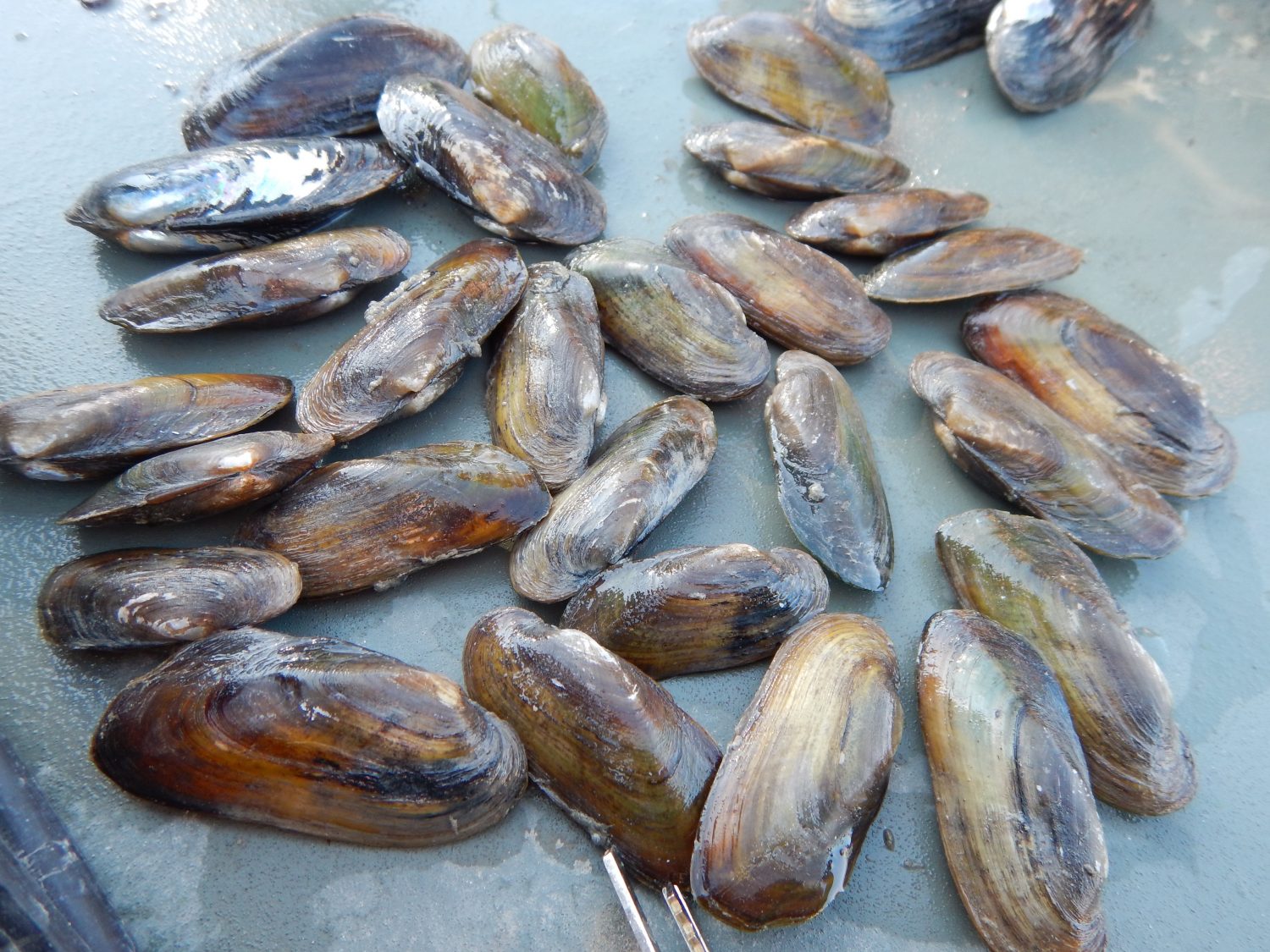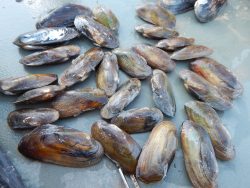The U.S. Fish and Wildlife Service (USFWS) has listed the Texas Hornshell (Popenaias popeii), a native freshwater mussel, as Endangered under the federal Endangered Species Act (ESA).
More than 300 mussel species are known to occur in the United States, making it one of the most biodiverse regions for freshwater mussels in the world. In particular, the southern United States is home to the bulk of the world’s diversity, including 54 species in Texas alone. Freshwater mussels are widely considered among the most imperiled faunal groups in the United States and nearly 75% have been designated as encountering some form of imperilment. In 1989, the Texas Hornshell was designated as a Candidate Species by the USFWS and in 2009, the species was listed as state-threatened by the Texas Parks and Wildlife Department.
What makes the Texas Hornshell unique?
From the species’ characteristic shell to its preference for inhabiting bedrock crevices, undercut riverbanks, and travertine shelves, the Texas Hornshell is unique when compared to other freshwater mussels found throughout its United States distribution. Unlike other species within the region, the Texas Hornshell has an elongated, rectangular shell shape, which differentiates it from other species. The species’ habitat preferences provide the long-lived animals, which can potentially live up to several decades, with flow refuge from the large, sudden flooding events that occur in the region.
Where is the Texas Hornshell found?
The Texas Hornshell is currently found in few rivers throughout Texas, New Mexico, and Mexico, south to the state of Veracruz. Specifically, five populations of the species are known to occur in the United States in the Black River (NM), Pecos River (TX), Devils River (TX), Lower Canyons of the Rio Grande River (TX), and the Lower Rio Grande River near Laredo (TX). Remaining populations are estimated to occupy only 15% of the species historical distribution.
The Future of Endangered Mussels in Texas
In its final rule listing, USFWS identified (1) impairment of water quality, loss of flowing water, and increased fine sediments, (2) increased predation, (3) barriers to fish movement, (4), and effects of climate change as factors that have led to the species’ decline throughout its known range.
Over the next few years, there is potential for other freshwater mussels found in Texas rivers to receive protection under the ESA. Currently, 12 of the 15 state-protected species are under consideration for listing and six are already considered Candidate Species for protection. If these species are found to warrant listing under the ESA, federally-protected mussel species would be located within every major river basin throughout the state of Texas and additional compliance and mitigation activities would be required for projects with in-stream actions that could impact these species, including surveys and potentially relocations. As population growth continues to occur along the Interstate 35 corridor between Dallas-Fort Work and San Antonio, it is reasonable to expect that the intersections between development and freshwater mussel conservation will become more frequent in the future.
EnviroScience Malacologists are Ready to Assist with Mussel Surveys
EnviroScience, Inc. has malacological (freshwater mussel expert) staff that have extensive experience in habitat evaluations, freshwater mussel surveys, and mussel relocations throughout Texas and the U.S. This experience allows EnviroScience to conduct surveys in habitats ranging from small streams to large rivers and lakes with in-house staff and divers for federal, as well as state threatened and endangered freshwater mussels.
See the new rule in the Federal Register here.
For further information about this topic or to discuss how impacts on freshwater mussels may affect your upcoming projects, please contact us today.



